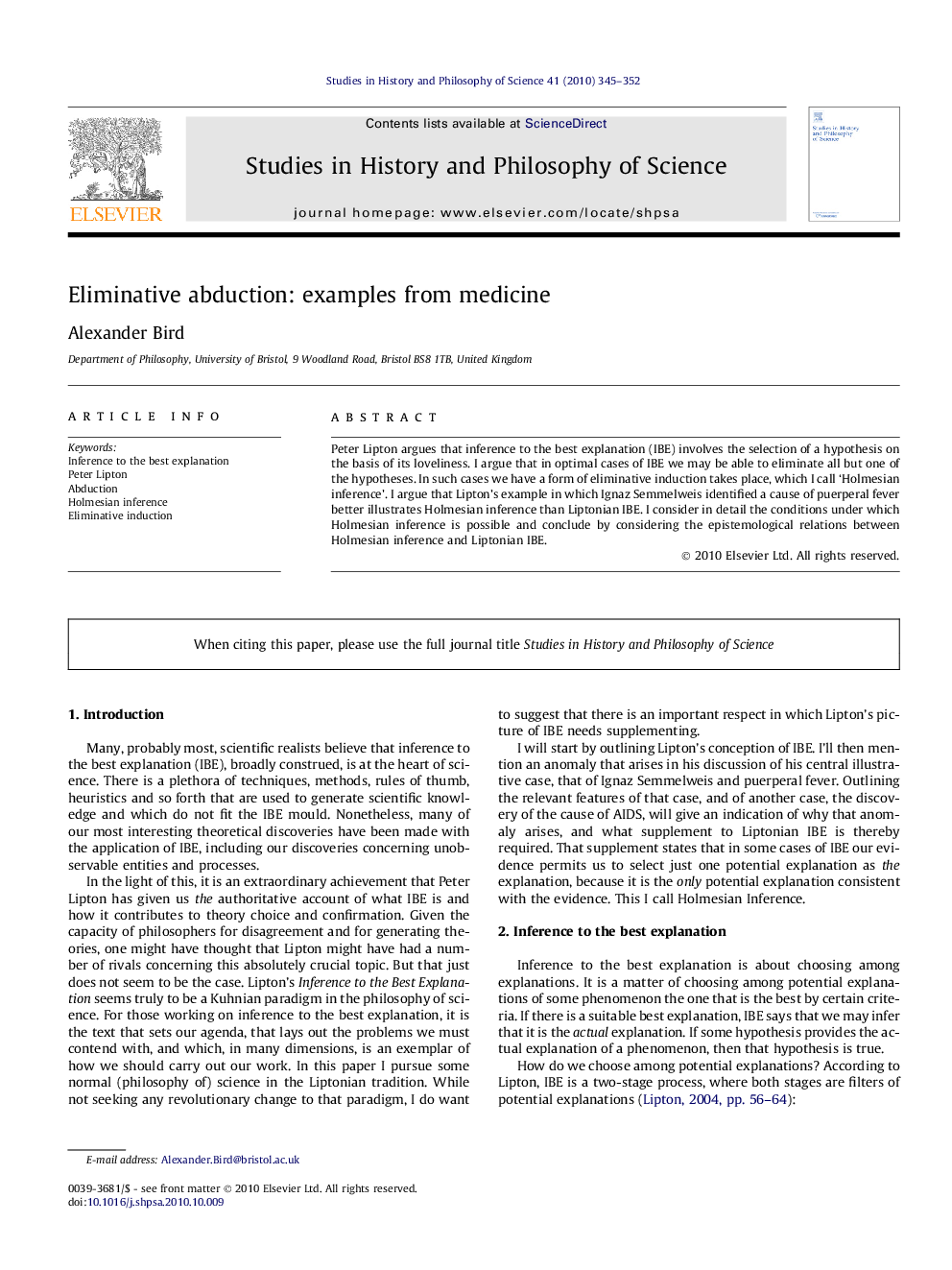| Article ID | Journal | Published Year | Pages | File Type |
|---|---|---|---|---|
| 1160625 | Studies in History and Philosophy of Science Part A | 2010 | 8 Pages |
Abstract
Peter Lipton argues that inference to the best explanation (IBE) involves the selection of a hypothesis on the basis of its loveliness. I argue that in optimal cases of IBE we may be able to eliminate all but one of the hypotheses. In such cases we have a form of eliminative induction takes place, which I call ‘Holmesian inference’. I argue that Lipton’s example in which Ignaz Semmelweis identified a cause of puerperal fever better illustrates Holmesian inference than Liptonian IBE. I consider in detail the conditions under which Holmesian inference is possible and conclude by considering the epistemological relations between Holmesian inference and Liptonian IBE.
Related Topics
Social Sciences and Humanities
Arts and Humanities
History
Authors
Alexander Bird,
